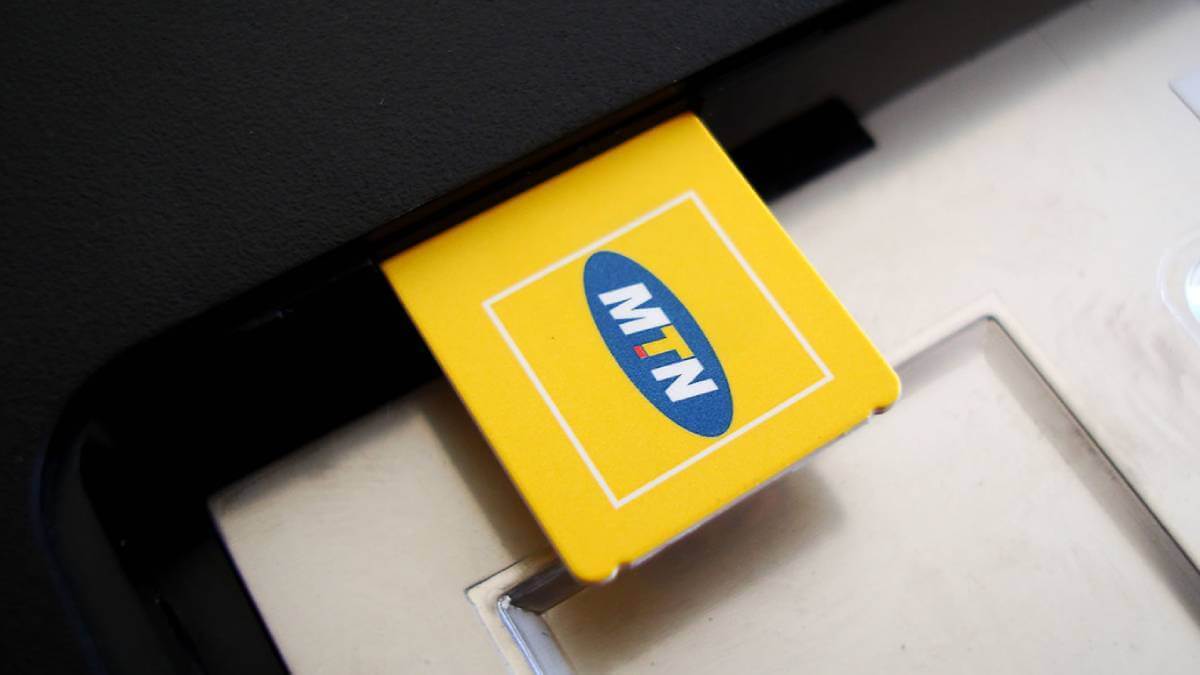MTN offered $35M for Afghanistan operationMTN offered $35M for Afghanistan operation
MTN group has received a binding offer for 100% of MTN Afghanistan as it continues with plans to completely exit the Middle East and focus on its pan-African footprint.

Continuing with its plans to sell all of its operations in the Middle East and focus on its pan-African footprint, MTN has received an offer for its business in Afghanistan.
The announcement was made as part of the group's interim results for the six months ended June 30, 2022, which saw group service revenue tick up 14.8% to 92.5 billion South African rand (US$5.7 billion) – in constant-currency terms.
"We announced today that we've received a binding offer for 100% of MTN Afghanistan as part of our pan-African focus and Middle East exit, subject to completion of all [conditions] related to this binding offer," MTN Group CEO Ralph Mupita told journalists on a media call on Thursday morning.
He would not disclose the name of the company looking to buy the Afghanistan operation. But he said the deal would be worth gross proceeds of $35 million, to be paid over a period of time, and on a discounted basis would equate to about $31 million in gross proceeds.
"Our intention was to do an orderly exit of Afghanistan, and we were looking to maximize the proceeds we could get within the context of the macro [environment] within Afghanistan. So, we're very comfortable with the proceeds that we are going to receive – subject to concluding all the conditions precedent," he said.
Mupita said MTN had received a binding offer but was still going through the processes of concluding share purchase agreements and engaging with the Afghan regulator.
"We are really focused on reducing our footprint to a pan-Africa focus and also reducing the risk profile of the group. So, that may not have a financial value to it, but I think it does improve the risk-adjusted view on the group."
The completion of the transaction will conclude the exit of MTN's previously consolidated Middle East markets of Syria, Yemen and Afghanistan. Only Iran will remain, where MTN has a 49% financial investment in Irancell as part of a joint venture, which it said "will continue to be managed for value within the MTN portfolio".
Afghanistan had long been a headache territory for the group but it did manage to put a lingering terrorism complaint behind it last year after a US magistrate judge recommended that the case be dismissed.
Exit strategy
MTN's Middle East exodus has been a long time coming with the original plan for an "orderly exit" of its four operations in the region announced back in August 2020.
At its half year results two-years ago former CEO Rob Shuter said that it planned to sell its 75% stake in MTN Syria first. However that didn't quite pan out and MTN decided to abandon its telecoms operation in Syria in August 2021 saying that the regulatory actions and demands in Syria had made operating in the country "untenable."
This after its Syrian business was placed under judicial guardianship in February 2021.
The Yemen business, meanwhile, was sold in November 2021 to the group's minority shareholders in the country.
Robust results
MTN said it had been operating under challenging conditions in the six-months due to macroeconomic and geopolitical volatility, global supply chain disruptions, constrained on-grid power supply in South Africa and greater regulatory requirements across many markets.
Despite these the group's results were strong once again with reported headline earnings per share (HEPS) – considered the main profit measure in South Africa – increasing by 46.5% year-on-year (YoY), to 567 South African cents (34.4 US cents).
Group service revenue grew almost 15% supported by growth of 19.9% in Nigeria, 29% in Ghana, 10% in Uganda, 10.9% in Cameroon and 4.1% in South Africa.
The Group's earnings before interest, tax, depreciation and amortization (EBITDA) increased by 15.1% to R43.9 billion ($2.7 billion), before once-off items.

Ralph Mupita, MTN Group president and CEO. (Source: MTN Group).
"Notwithstanding the tough macro conditions, MTN remained focused on investing in our markets to increase broadband coverage and to reduce the cost to communicate," said Mupita. "We accelerated network investment to R17.1 billion ($1.06 billion) and spent an additional R7 billion ($432 million) on securing 4G and 5G spectrum in the key markets of South Africa and Nigeria."
The investment in networks increased access to broadband services to 85.5% of the population and led to an average 22.5% reduction in data tariffs, MTN said.
MTN operates in 19 markets and has 281.6 million subscribers, an increase of 5.6% YoY.
"Growth in data revenue was particularly strong, up 35.9%, driven by MTN Nigeria, MTN Ghana, MTN Cameroon and MTN South Africa," explained Mupita, adding that fintech revenue also grew by 14%, with solid performances from Nigeria, Uganda and Ghana.
"The introduction of fintech taxes in some markets slowed revenue growth in Q2, but we remain encouraged by the ecosystem growth as users, agents and merchants continued to grow healthily during the period under review, with transaction volumes growing by 31.5% during the period," he said.
He told the media that the group was making progress on its plans to separate its fintech and fiber businesses from the traditional GSM business and had started the process of engagement with "select potential strategic investors" for the group fintech structure and hoped to conclude those deals by the end of the year.
Telkom SA talks continue
Mupita couldn't give much of an update on MTN's plans in South Africa to buy the entire issued share capital of fellow operator, Telkom SA.
"On Telkom we can't comment other than to say that we are having ongoing discussions with them," he said.
Last month the market learned of the possible deal that would see consolidation of the second- and third-biggest mobile operators in SA.
Want to know more? Sign up to get the weekly Connecting Africa newsletter direct to your inbox every Friday.
"What we can say, though, is that for some time we've been putting forward a point of view that consolidation across markets, is something over the medium term that we believe is inevitable," Mupita said.
"We are seeing the fixed mobile convergence theme playing out in developed markets, and also in developing markets such as Southeast Asia and Latin America. It's a trend that we cannot avoid on the African continent. If we are to be able to provide world class networks to Africans more generally, there is a level of capital investment that's going to be needed on a sustained basis," he concluded.
*Top image source: warrenski on Flickr CC 2.0
— Paula Gilbert, Editor, Connecting Africa


.jpg?width=700&auto=webp&quality=80&disable=upscale)
_(1).jpg?width=700&auto=webp&quality=80&disable=upscale)
_(1).jpg?width=700&auto=webp&quality=80&disable=upscale)
.jpg?width=700&auto=webp&quality=80&disable=upscale)
.jpg?width=700&auto=webp&quality=80&disable=upscale)
.jpg?width=700&auto=webp&quality=80&disable=upscale)
.jpg?width=700&auto=webp&quality=80&disable=upscale)
.jpg?width=700&auto=webp&quality=80&disable=upscale)
.jpg?width=800&auto=webp&quality=80&disable=upscale)

.jpg?width=700&auto=webp&quality=80&disable=upscale)